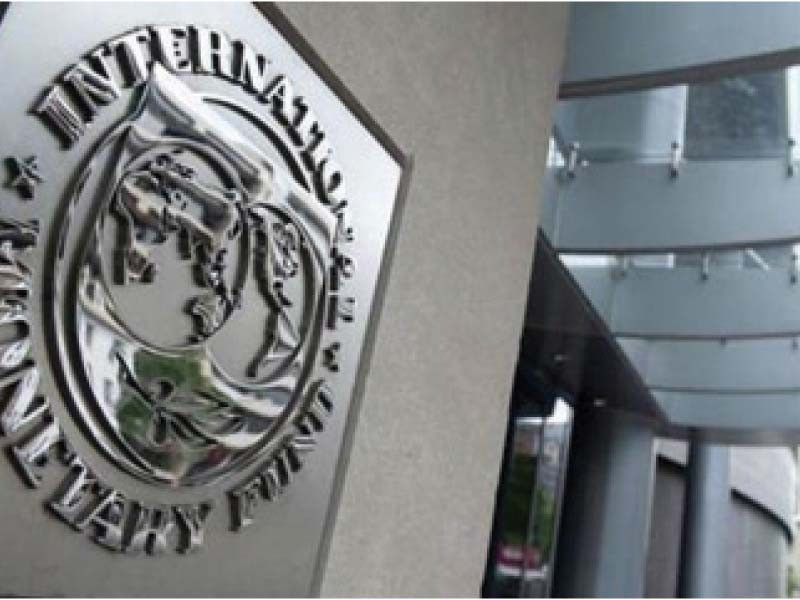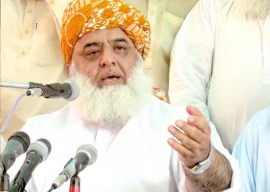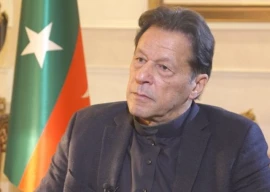
In a major development, the International Monetary Fund (IMF) on Thursday announced sending its mission to Pakistan next week in a bid to break a deadlock over critical conditions regarding plugging a fiscal hole of around Rs2.5 trillion through a combination of taxation, expenditure and power tariff measures.
“At the request of the (Pakistani) authorities, an in-person fund mission is scheduled to visit Islamabad from January 31 to February 9 to continue discussions under the 9th EFF (Extended Fund Facility) Review,” Esther Perez, the Resident Representative of the IMF said.
The much-delayed announcement came hours after Finance Minister Ishaq Dar bowed to let the rupee devalue by Rs25 to a dollar or 9.61% - the highest ever drop in a single day in Pakistan’s history.
The government moved only after the US conveyed in plain words to the government to follow the IMF path instead of seeking political favours while foreign nations, too, excused themselves from giving more lifelines without the IMF umbrella.
“The US sent its deputy assistant treasury secretary to Pakistan to deliver the message,” according to a government source.
Prime Minister Shehbaz Sharif also met with US Ambassador Donald Blome, informing him about Pakistan’s decision to take the IMF route. But Pakistan still asked for some relaxation in the IMF conditions, finding the conditions impractical in the present charged political atmosphere.
The Pakistani rupee plunged to a record low of Rs255.43 against the dollar in the interbank market on Thursday, sliding nearly Rs25 or 9.61% from a day.
After taking the oath as the finance minister, Ishaq Dar had vowed to bring back the dollar price to Rs180 from around Rs240. On October 11, the rupee-dollar parity touched to around Rs217 but from there it started recovering.
Before the IMF announcement, Pakistani team, led by Dr Aisha Pasha, Minister of State for Finance, shared a draft framework to implement some of these actions over next few days.
Even if both the sides are able to reach a consensus by February 9 and Pakistan delivers on the promises, the next tranche may not come before the end of March.
The IMF on Thursday laid bare its demands from Pakistan, which are in line with the agreement signed between both sides. “The mission will focus on the policies to restore domestic and external sustainability, including to strengthen the fiscal position with durable and high quality measures while supporting the vulnerable and those affected by the floods,” said Perez.
The sources said that the government’s assessment was that as against the old commitment to provide primary budget surplus of 0.2% of GDP, there is now a gap of 2.8% of the GDP or Rs2.5 trillion against the budgeted targets. “But the IMF’s assessment was that the gap was about Rs3.2 trillion or 3.6% of GDP,” said the sources.
The IMF was ready to relax the condition to the extent of expenditure on floods, which may slightly shrink the size of the hole. During 10-day long talks, both the sides would try to find a middle ground. “So far, the IMF has shown no inflexibility,” said the sources.
The IMF has told Pakistan to bring a mini-budget, comprising measures that will ensure quick and clean recovery of taxes to avoid the courts’ path. These measures will include increase in the petroleum levy rate on petroleum products, taxes on tobacco, sugary drinks and taxes on commercial banks.
The IMF has not agreed to the FBR’s proposal to impose new taxes worth Rs170 billion only, as its demand is much more than this. The fund has estimated Rs420 billion shortfall against the FBR’s annual target of Rs7.470 trillion.
Esther further said that the IMF mission will also focus on “restoring the viability of the power sector and reverse the continued accumulation of circular debt”.
The sources said that after the record single-day exchange rate devolution, this will be the hardest nut to crack with the IMF. According to the Power Division’s own assessment, there was about Rs805 billion deviation against the annual reduction plan.
This will require minimum Rs7.50 per unit increase in tariffs, or even may be more depending upon what base the government takes, according to the sources. If the government takes the lifeline consumers limit of 200 units monthly consumption, then the increase will be more and if the IMF allows to relax the limit to 300 unit, then the increase will be less.
The deviation in the plan was mainly because of political decisions by Prime Minister Shehbaz Sharif to give subsidies to exporters, waive fuel cost adjustments and poor governance of the Power Division.
Import Controls
The IMF’s Resident Representative stated that the Mission will focus on “reestablishing the proper functioning of the foreign exchange market, allowing the exchange rate to clear the FX shortage”.
The statement suggested that Pakistan will have to lift all restrictions on the imports that led to reduction in the monthly import bill from $7.5 billion to the $5.3 billion on an average. The lifting of restrictions will father drive the value of the US currency very high.
The IMF stated that stronger policy efforts and reforms are critical to reduce the current elevated uncertainty that weighs on the outlook, strengthen Pakistan’s resilience, and obtain financing support from official partners and the markets that is vital for Pakistan’s sustainable development.
Pakistan lost $3 billion in the shape of low exports and low foreign remittances due to wrong government policies of the past four months, former Finance Minister Miftah Ismail said on Thursday. Miftah Ismail said Dar underestimated the IMF’s role which hurt Pakistan’s cause.
The central bank reported on Thursday that its reserves depleted by $923 million
to $3.7 billion as of January 20th. However, the sources said the reserves further dropped to $3.2 billion as of January 24th.
Some of the measures that Pakistan will take are highly inflation and could cause rapid acceleration of inflation.
Military to remain a holy cow
Meanwhile, in order to meet another condition of the IMF, the FBR on Thursday unveiled the “Sharing of Declaration of Assets of Civil Servants Rules, 2022”.
The rules will allow the commercial banks to seek the asset details of the civil servants before opening their bank accounts.
However, the government has excluded the army officers from the purview of the asset declarations, which is discriminatory and highlights one of the reasons behind current economic mess in Pakistan where privileged classes are protected.
The rules showed that the FBR will share a simplified or abridged version of declaration- based on the fields agreed with the State Bank declared by a civil servant in his electronic declaration filed with FBR. The bank shall obtain an express written consent from the civil servant of whom the bank intends to access information from FBR; and the bank shall obtain a certificate from the civil servant as per prescribed format annexed duly signed by the person declaring that he is a civil servant of BS-17 and above, with his complete name, designation, employee number and all other particulars that are prescribed in the format.

1731584966-0/diddy-(43)1731584966-0-405x300.webp)








1731577272-0/Express-Tribune-(1)1731577272-0-270x192.webp)


1674707611-0/Dar-(1)1674707611-0-270x192.webp)







COMMENTS (2)
Comments are moderated and generally will be posted if they are on-topic and not abusive.
For more information, please see our Comments FAQ